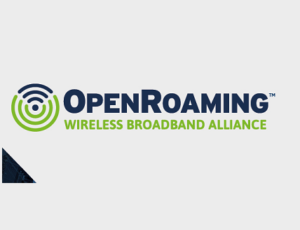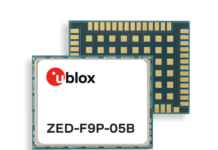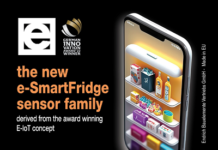
The Wireless Broadband Alliance (WBA) announced the launch of WBA OpenRoaming™ Release 2, which enables network and service providers, including MNOs, Cable Operators and ISPs to offer an enhanced quality of experience (QoE) to their subscribers, including voice, high definition video streaming, gaming and more. OpenRoaming™ frees users from the need to constantly re-register or re-enter log-in credentials, allowing seamless and instant network access, enterprise-grade security and a carrier-grade Wi-Fi experience across multiple locations. The platform was developed as a global solution based on a common set of standards to bridge the gap between cellular and Wi-Fi, offering users frictionless connectivity as users roam between guest Wi-Fi networks and public Wi-Fi hotspots.
In this latest release, WBA has taken the proactive step of accelerating the definition, development and scope of its global Wi-Fi Federation, which aims to expand the Wi-Fi roaming ecosystem, promote global connectivity, solve secure auto-onboarding, and create new opportunities for operators and venues to commercialize their networks. The release also includes service enhancements for network service providers and operators, allowing them to guarantee their subscribers a defined, high-quality experience when using the OpenRoaming network.
Enhanced OpenRoaming for Network Operators
To bridge the gap between Wi-Fi and cellular coverage, MNOs, venues and other service providers are now able to deliver a defined, high-quality experience when their subscribers use OpenRoaming. Release 2 includes a federation-backed “silver” tier that guarantees an “HD video streaming experience” with a downlink rate of at least 5 megabits per second and end-to-end latency of less than 150 milliseconds. Silver-tier service is already available across 95% of the OpenRoaming ecosystem.
New defined commercial roaming templates
OpenRoaming™ Release 2 makes it easier for Wi-Fi network operators to secure new revenue streams through updates to commercial roaming templates, giving them the ability to scale roaming relationships quickly and efficiently. Orion Wifi, a platform from Area 120, Google’s in-house incubator, is the first to deploy OpenRoaming release 2. Orion Wifi lets public venues – stores, office buildings, stadiums and other locations – sell Wi-Fi capacity to cellular carriers, making it easier for venues with high-quality Wi-Fi to collaborate with cellular carriers. Raj Gajwani, director of Orion Wifiand a member of WBA’s board of directors, commented: “The future of telecom will require sophisticated heterogeneous networks. OpenRoaming Release 2, which powers Orion Wifi, is a huge step to unlock that future.”
Release 2 employs the WBA Wireless Roaming Intermediary Exchange (WRIX-N) standard for settled service and allows operators and other service providers to agree on the parameters for payment, sanctioning access based on the name of the operator, the service offered, the location and the agreed cost. Release 2 also provides the capability to move beyond bi-lateral roaming agreements, with the flexibility to set up multilateral agreements on their own financial terms supported by OpenRoaming Federation terms and conditions.
Tiago Rodrigues, CEO of WBA, who announced a year ago that OpenRoaming was “Open for business“, commented on the OpenRoaming Release 2, “Our goal has always been to provide users with a secure and frictionless public Wi-Fi experience as part of our broader mission to connect the world. To make this happen, we’re working to attract businesses from across the ecosystem, by ensuring that the standard delivers commercial benefits for vendors, operators and retailers. Release 2 is one more step on that journey, and we encourage players from every part of the Wi-Fi ecosystem to join this movement and become part of the bright future we envision for OpenRoaming – One Global Wi-Fi Network.”
Matt MacPherson, wireless CTO at Cisco and member of WBA’s board of directors added, “We’re excited to provide a home for Google’s Orion Wifi in the Cisco DNA Spaces App Center. This integration is lowering the barriers to adoption for OpenRoaming release 2, specifically for OpenRoaming-Settled access, which is making it easier to monetize networks with carrier-class Wi-Fi offload.”
OpenRoaming is supported by companies such as, AT&T, Cisco, Comcast, CommScope, Deutsche Telekom, Google, Samsung and more.


















